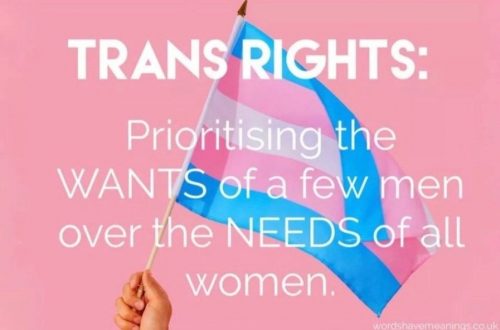Today is the International Day of Zero Tolerance for Female Genital Mutilation. The WHO estimates that between 100 and 140 million women have undergone this procedure, the majority of these in African countries. But, as the Iranian and Kurdish Women’s Rights Organisation (IKRWO) points out, the problem needs to be addressed in the UK too, where approximately 66,000 women and girls have been subjected to the practice, and many more are at risk:
“FGM is a serious crime under UK law, but we know that the practice is continuing within Middle Eastern and African communities,” added Diana Nammi, Director of IKWRO. “Greater effort is needed to raise awareness within affected communities of the impact that FGM has on physical and mental health, and to convince parents that FGM is a violation of girls’ rights which will not be tolerated and should be stopped.”
Here is a horrifying report of how one girl living in Britain was taken back to her native Somalia to endure FGM:
“I had to take a pee so they loosened one of the bounds around my legs,” she continued. “It was so painful, as if there was glass broken inside me. For the next few days, I refused to go to the toilet but my mother kept nagging at me.” Aisha thinks this is what led to years of urinary problems. “When I returned to Cardiff, I told the teacher my bum had been cut. She said, ‘That’s nice.’ She saw it as part of our culture.”
The author, Alice Onwordi, reinforces the dangers of misplaced cultural sensitivity:
It is to be hoped such efforts to raise awareness are successful, because clearly we are a long way from having an open and frank discussion about FGM in the UK. In my own experience healthcare professionals tend to adopt a kid-glove approach to the issue, offering answers that are tentative and couched in the language of cultural sensitivity when they are pressed on the subject. Such delicacy does no service to the girls who are traumatised.
Recently I recommended the Linoleum Surfer blog, and here he writes very directly about the practice. I was sorry to see that a female Omani blogger, whom he linked to, has now made her blog ‘private’ as she wrote a really heartbreaking piece about her feelings when she learnt that a young female relative had undergone fgm.
A friend of mine in fact, who is the daughter of one such prominent tribal figure who lives in the Eastern region, told me that as a child she and her sisters would run and hide when a certain elderly woman was sighted in the village. They never knew why until they were older, but that lady was the genital-cutter. Those are the few then: some from East Africa, some from certain tribes or families who probably don’t know where the practice originated. And it’s not just an obscure village custom. In cities, among PhD holders and the urban elite, it happens too …
That is what happened to 20% of Omani women. Although the percentages are lower, it happens all over the Gulf region to a greater or lesser degree. In Yemen it happens even more. In Iraq, it is reportedly up to 60% within the Kurdish community. In other parts of the Arab World, like Egypt and Sudan where it probably originated, the percentage is more like 70%. And what they do is simply unbelievable (look up “type three” in the Wiki article linked above – but not if you’re of a sensitive disposition).
Ms Magazine welcomes the fact that more communities are turning their back on this horrific practice. Here you can read how one woman, Sister Fa the Senegalese hip hop artist, has tried to bring about change in her society.
Hat Tip: PJH in the comments


